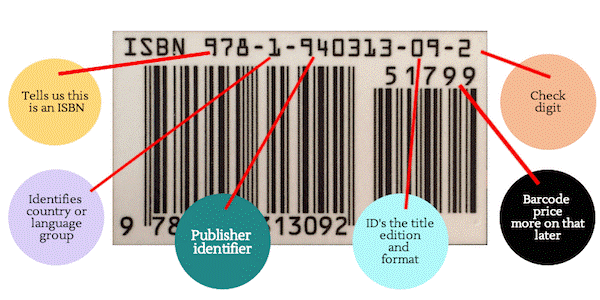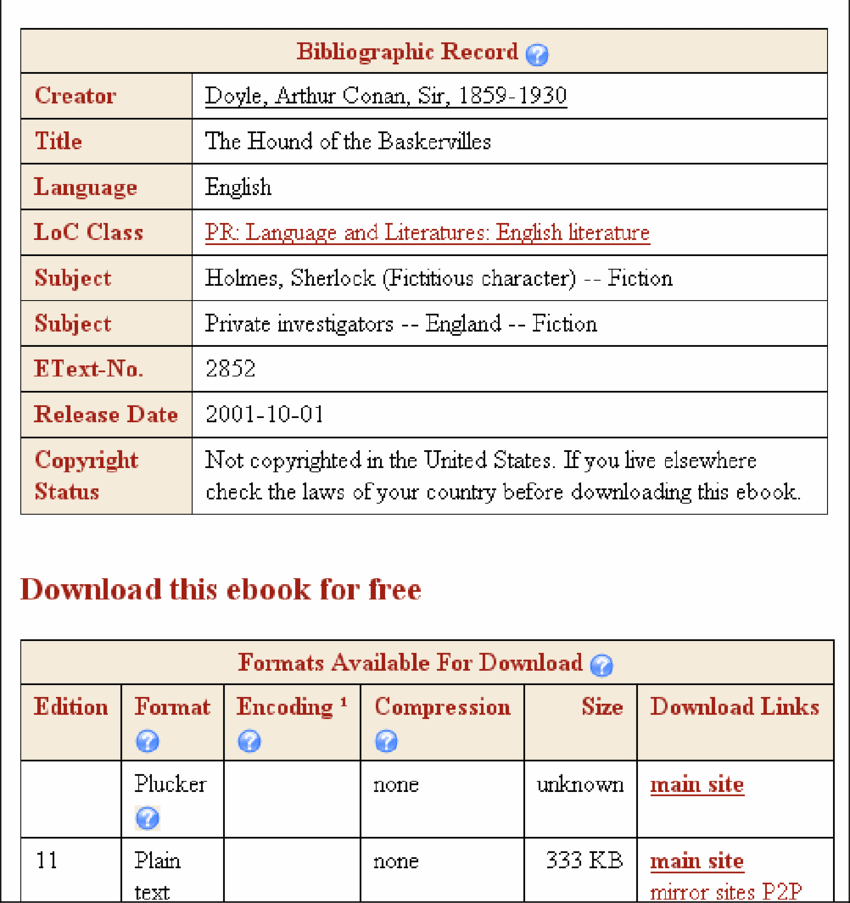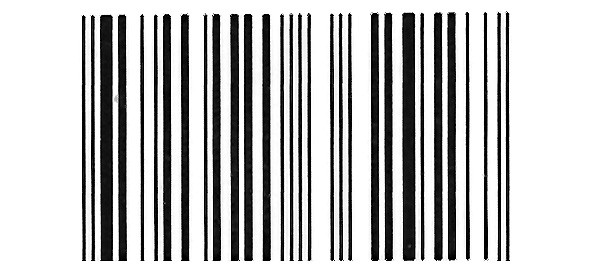
Some students are under the mistaken impression that the ISBN is used only to classify textbooks. However, this number is used in selling all kinds of books. People looking to get a price quote on a book or get more information about it can visit an ISBN database or any other book search website and look up a book by the ISBN – this interaction is known as ISBN search or ISBN lookup. ISBN search sites provide details of a book, including title, author, publisher, etc. If a person is interested in purchasing a book, the ISBN helps to find it.
- How Did the ISBN Code Come about?
- What’s the Purpose of the ISBN?
- What Exactly is a Metadata?
- 10-digit ISBN vs. 13-Digit ISBN
- How Can You Do an ISNB Lookup?
- ISBN Differentiates between Editions
- 10 Reasons an ISBN Lookup is So Important
- What Kinds Of Books Have an ISBN?
- How You Can Use the ISBN to Sell Your Book Online
- 4 Commonly Asked Questions about ISBN Lookup
How Did the ISBN Code Come about?
A retired Irish statistics professor came up with the 9-digit Standard Book Number in 1966 for several British bookstores in an effort to keep track of their internal inventory. This stock number helped booksellers, warehouses, publishers and others identify books quickly, especially with the introduction and popularity of computers.
In 1970, the International Organization for Standardization permitted the use of a 10-digit code known as the International Standard Book Number (ISBN). This number increased to 13 digits in 2007 for an array of reasons. The ISBN isn’t the only code used. There are also the International Standard Serial Numbers (ISSN), International Standard Music Numbers (ISMN) and the International Standard Recording Codes (ISRC). Read more about ISBN history here.
What’s the Purpose of the ISBN?
The ISBN is used to identify books – with books before December 2006 using a 10-digit number and anything afterward identified by 13 digits. An ISBN will read a bit like this: 975-1-543211-04-4
- The first three numbers are the ISBN
- The second number designates the country or language
- The third set of numbers denotes the publisher
- The fourth set of numbers is the title or format
- The last number is the check digit verifying the other digits’ accuracy

Image credit: Self Publishing Advice
When somebody is looking up the book, the ISBN owner is noted as the publisher of record. Don’t mistake the ISBN for copyright, as it’s not the same. As ISBN doesn’t mean you have immediate copyright. See what ISBN is. You can find the ISBN on the back cover of a book and listed on the front side with the publisher and other pertinent information. It’s also a part of the metadata.
What Exactly is a Metadata?
Book metadata denotes information about the book, such as title, subtitle, book description, etc. Other information may also be included, such as a summary, bio and table of contents.

Image credit: ResearchGate
Book metadata refers to the information that describes a book, including its title, author, publisher, publication date, ISBN or other unique identifier, genre, and other relevant details. This information helps readers and booksellers to identify and classify books, as well as to make informed decisions about which books to buy or read.
Book databases are digital collections of book metadata that are used by libraries, booksellers, and other organizations to manage their book collections and provide access to books. These databases can be proprietary, such as those used by online booksellers like Amazon or Barnes & Noble, or they can be open-access databases like the Library of Congress Catalog, which is freely available to the public. Book databases are typically organized using a standardized set of data fields, such as title, author, publisher, and publication date. These data fields help to ensure that the information is consistent and accurate, and can be easily searched and retrieved.
In addition to basic bibliographic information, book databases may also include more detailed information about a book’s content, such as subject headings, summaries, reviews, and ratings. Check our article comparing some book databases available for retrieving book metadata.
10-digit ISBN vs. 13-Digit ISBN
The 10-digit ISBN is different from the 13-digit ISBN, and price doesn’t factor into it. If you know what the ISBN represents, you can know which ISBN is being used. Many people feel the number 10 is the same as the 13-digit ISBN, but it’s not. But, one thing to note is that any 10-digit ISBN will also have a corresponding 13-digit number. The US ISBN Agency came up with a 979 prefix for the dwindling 978 inventory in 2020, with a note that no 979 prefix has a 10-digit ISBN. 
How Can You Do an ISNB Lookup?
You can search or look up any ISBN.  For students in the market for textbooks, you can type in the book’s ISBN in a search engine like Google that will bring up the ISBN search sites of different bookselling websites and sometimes buyback sites. The best way to not spend your time checking them all is to perform a search on a book price comparison search engine like BookScouter. Even if you’re not trying to purchase college textbooks, you may still want to know the best price for a particular book or details like the author or the publisher.
For students in the market for textbooks, you can type in the book’s ISBN in a search engine like Google that will bring up the ISBN search sites of different bookselling websites and sometimes buyback sites. The best way to not spend your time checking them all is to perform a search on a book price comparison search engine like BookScouter. Even if you’re not trying to purchase college textbooks, you may still want to know the best price for a particular book or details like the author or the publisher.
You can learn all about books through their ISBN, and, from the other side, if you don’t know what the ISBN of a book is, you can look it up through ISBN websites by title or by author. An ISBN lookup is a critical component of selling books. Students can use this number to sell or find books via any website such as BookScouter. With an ISBN lookup price comparison site like BookScouter, you can quickly sell your books to a buyback vendor who wants them and pays the most.
ISBN Differentiates between Editions
The ISBN differentiates between a book’s many editions. It’s not uncommon for textbook publishers to release a new edition of the same book every so often. While you can buy a used book for a class, you might want to make sure that the professor has assigned that very edition. For online purchases, the ISBN is a necessary component to buying the right one. Of course, you need to know where to find the ISBN. If you have no idea what you’re looking for, you can’t look for it. The ISBN is present on any book. You can use the information and paste it into a search engine.
10 Reasons an ISBN Lookup is So Important

- It allows you to know about the books you want and compares their prices.
- Learn its value and worth, regardless of where you found the book.
- Use the title, publisher, publication date, author, and edition to learn more about the book.
- Bookshops, distributors, libraries, and wholesalers can keep track of their inventory, buying more when needed.
- Learn about the ISBN via book title and edition.
- Use an ISBN lookup to find textbook answers.
- Develop precise book citations – APA or MLA citations – for essays, research papers, etc.
- Find textbook-related course materials.
- Convert ISBNs to other codes such as ISSNs and ASINs.
- Use ISBN to find the free PDFs (or free textbooks).
What Kinds of Books Have an ISBN?
Besides physical books, ISBNs can be found on other books such as:
- Audiobooks
- Brochures
- Coloring books
- E-books
- Graphic novels
- Maps

ISBNs are not assigned to newspapers, comic books, magazines and periodical materials. While some educational DVDs and CDs are assigned ISBNs, the number cannot be used to find a movie or song.
How You Can Use the ISBN to Sell Your Book Online
- The first thing you need to determine is the kind of ISBN needed. There are e-books, audiobooks, and physical books available. Ask yourself what category your book falls under.
- Use other identifying information to help you out – author name, publisher name, etc. when listing your book.
- Add as much information to the ISBN search service so people can search for your book easily. There are different methods to this, but publishing links with the ISBN are generally the most common.
- Make sure to mention the ISBN lookup sites used to allow others to quickly find and search book information for free. You can do this via word-of-mouth, social media or any place someone could be interested in the book.
4 Commonly Asked Questions about ISBN Lookup
- How Can You Sell A Book With ISBN? – No matter how old or new the book is, an ISBN is the best way to sell it. A barcode scanner will need to be used to scan the book’s barcode. This isn’t always possible, so the UPC (Universal Product Code) may be used instead. You can also use BookScouter to sell your books by typing in its ISBN. To learn more about selling a book when you can’t find the ISBN check the article.
- Can Books Be Sold Without An ISBN? – Digital textbooks can be sold without an ISBN, but printed books must have them to be sold. Every edition of the book must have an ISBN.
- Will Paperback and Hardcover ISBNs Be The Same? – Every publication edition has an ISBN to it, even if it’s paperback or hardcover ISBNs may differ.
- What Is An ISBN Used For? – The ISBN is used by booksellers, libraries, publishers and others to order, list, sell and keep track of a product. It can also be used to recognize the book’s format, edition and title.




 at the best price with a single search!
at the best price with a single search! 




